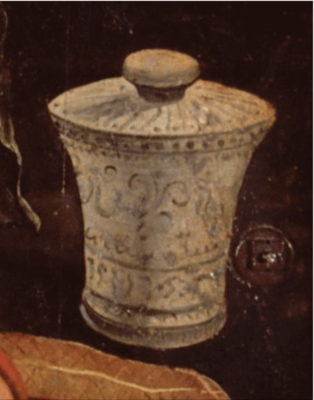|
Medicine of the Person |
Kies een jaar
2025
| 2024
| 2023
| 2022
| 2019
| 2018
| 2017
| 2016
| 2015
| 2014
| 2013
| 2012
| 2011
| 2010
| 2009
| 2008
| 2007
| 2006
| 2005
| 2004
| 2003
| 2002
2025
How do we experience medicine of the person today?
The past 80 years since the first annual conference for medicine of the person in 1947 have brought incredible advances in medical technology. Both imaging and laboratory analysis, along with a good history taking and clinical examination, usually lead us to reliable diagnoses and helpful therapies. However, do these allow us to understand the whole person? Although the psychosomatic aspects are part of a correct assessment today, they are still far too often neglected in favour of technology due to the doctor‘s lack of time, over-reliance on technology, and the patient‘s pre-conceived ideas and demands.
How often do we suspect current life problems or old traumas during in-depth conversations that could be responsible for psychological tensions or even cause organic disorders and prevent illnesses from getting better?
On the other hand, we live in a time of an overwhelming amount of worldly wisdom and psychological practices or therapy methods to help us regain our mental and physical balance and to find orientation amidst the exacting demands on our life. Even children and young people increasingly suffer from the burden of having to find purpose or even just hope for their lives.
How do we experience medicine of the person today?
What can we offer in the way of medicine of the person, medicine with a personal doctor-patient relationship, in our largely secular world? How do we find points of contact with people from other cultures?
We want to discuss these questions and learn from the experiences of various experts at the 75th International Annual Conference and contribute our own experiences and views. In this way we will also be able to make progress ourselves.
Frédéric von Orelli
Lectures
How do we experience medicine of the person today? Introduction to the topic - Ralf Hinrichs
Emergency medicine by telephone – an unusual medical relationship - Pierre Carnoy How does the lack of religious commitment among young people today affect psychotherapeutic treatment? - Susanne Schlueter-Müller Medicine of the person versus different ideas of personalized medicine; is Tournier’s Christian way of viewing people still relevant nowadays? - Friederike Matter-Tansky Understanding Symptoms can open the Way to a more Meaningful Life - Illonka Boomsma Reflections on decisions about resuscitation - Susanne Renaud
2024
Continuity of care – is it a thing of past?
What is continuity of care? For me, it’s about seeing the same person. Even though I usually see patients no more than once a year in my valve clinic (less frequently since the covid epidemic when I fell behind), we still greet each other warmly, they enquire after my children, I notice when they are more breathless or unsteady walking into my clinic room, or when they seem to be struggling more to find their words. Because they know me, I hope they will find it easier to pick up the phone and let me know when they develop new symptoms and need a review.[...]
Our speakers this year will tell us about their experience of continuity of care – or its absence – and whether they feel it is essential to the therapeutic relationship or not that important. We will then have the opportunity to share in our small groups our personal reaction to the talks, and how what we have heard has made an impression on us. If we are still practising, it may just change the way we interact with our patients. If we have retired or become patients ourselves, it may change what we look for in our doctors and therapists.
Kathy Webb-Peploe
Lectures
Paul Tournier and Medicine of the Person - Frédéric von Orelli
Continuity of care needed to build a relationship of mutual trust - Florence Depeursinge Continuity of care when treating pain - Frédéric von Orelli Why I (still) enjoy doing outpatients - Kathy Webb-Peploe Requiem for continuity of care – only temporary? - Étienne Robin Is it possible to rebuild severed ties through continuity of care? - Béatrice Beauverd
2023
Health care challenge. Can we reconcile what patients expect of us with what we are able to deliver?
Not always... This discrepancy is nothing new.
Some patients receive care that is consistent with their needs. But others reject the solutions proposed or imposed.
In the West, medicine claims to be scientific: it uses only therapies whose effectiveness has been validated by experiments. But a number of patients think outside the box: they prefer unorthodox treatments. There are many other areas in which the expectations of certain patients do not sit comfortably with what they are offered.
There is currently a gap between patients and doctors that goes to the very heart of Personal Medicine: patients would like their doctor to be stable, available and close at hand. Their aspirations clash with the current practices of doctors who see themselves as interchangeable, who favour their own personal pace of life, who set up practice where it suits them, and who offer teleconsultations. We can be alarmed by this.
But we can also take comfort in the fact that patients and doctors often remain in agreement and appreciate each other.
Discover below the richness of the three Bible studies and five lectures that were given during these study days in Neudietendorf.
Lectures
Anger, Shame and Moral Injury: any way out? - Dr Penelope Campling
Experiences in psychiatry and psychotherapy - Dr Oliver Dodt Love as a healing power, the greatest challenge in medicine - Pr Jan Bonhoeffer Towards a new therapeutic alliance between two vulnerable people: helping the therapist to assist the patient to take active ownership of their care - Anne-Lyse Chabert Questions and answers with Anne-Lyse Chabert - Interview What matters the most now when life is like a play by William Shakespeare? - Dr Daniel Suk
2022
Solitude and Isolation in Healthcare
72th International conference of Medicine of the Person in Doorn, Holland.
As we are interested in caring for the whole person, we are regularly attentive to the symptoms presented by our patients, taking into account their family, social, emotional and spiritual environment and their expectations, before discussing possible treatment options with them.
Our patients may feel very lonely and confused about their illness because no one has taken the time to check what they understood from the explanation given in hospital or in town. They also come to us alone because they don't have any relatives to accompany them and sometimes their doctor is the only person they can talk to about their problems.
How can we help these patients who confide their difficulties and sorrows to us? Could we use solitude and meditation to help us to care for our patients better and avoid feeling isolated and alone?
Lectures
In touch and yet alone – loneliness in the era of social media - - Roland Stettler , Psychiatre, Suisse
Relieving isolation and cultivating connection for carers and people living with dementia - Martha Pollard Addictions the three types of medicine - Dr Jacques Besson Teenagers, social media and loneliness: the inside story - Rachel Melville-Thomas From a feeling of isolation to a life lived alone - Dr Marie-Claude Vincent
Bible studies
Jesus, a man surrounded by others but terribly alone - Étienne Robin, néphrologue, France
Being alone as the way to community - Dorette et Thomas Zürcher, conseillère psychologique, gynécologue, Suisse God, our refuge and hope in a lonely world - Kathy Webb-Peploe, cardiologue, Worthing Hospital, Grande-Bretagne
2019
Patients without capacity
With our interest in treating the whole per- son, we routinely explore our patients sym- ptoms and signs to make diagnosis, and concurrently consider their domestic, social, emotional and religious identity along with their expectations before formulating with them treating options. Ultimately they make decisions on treatment after weighting up all possibilities.
But what should we do when patients lack the physical, emotional or intellectual capa- city to make these decisions? How do our own values influence decisions? Indeed, should they? What do we do when our patients cannot appreciate the significan- ce of decisions we ask them to consider? What if they cannot, or will not recognise a problem, let alone appreciate benefits and risks of the decisions that affect them? Are our values influencing their decisions?
Lectures
How do we know? - Ali Gray
To accompany the patient toward the decision - Christian Schäfer Decisions at the sick bed - What do we do if the patient can no longer decide? - Andreas Rost Cases in the field of paediatric social work – when parents and paediatrician diverge from the child’s best interests - Marcelle Delour Can the law give us the basis upon which to decide whether to stop or to continue treatment of the unconscious patient on the intensive care unit? - Dominique Grimaud
2018
The art and science of medicine
In Paris, during this 2018 meeting of the international group of médecine de la personne, open to all in the caring professions interested in the role of relationship in care, our speakers talked about topics to do with the tension between science and how we care for patients in practice. For science is universal whereas practical care is specific to the individual. The topics included the role of evidence based medicine, of placebo, the beliefs of the doctor and the future of medicine, spirituality and medical research.
The art of caring for a patient comprises one part mystery allied to the personality of the professional providing care, their personal history, their deepest motivations whether conscious or unconscious. In our small groups, we discussed together current scientific thought, how we practice care, what we know, but also how we live each therapeutic relationship, since no two patients or carers are ever the same.
Lectures
Placebo, beliefs and knowledge to achieve humane clinical care - Dr. Olivier Bredeau
Medicine of the Person – the evidence of benefit - Pr. Richard Vincent The limits and the potential of evidence-based medicine - Dr. Petr Fiala The roles of the patient and of the doctor in tomorrow’s medical technology - Pr. Bernard Rüedi The patient centre of medical science and practice, embedded in spirituality - Pr. Inge Scharrer
2017
When medical care prejudices quality of life
69th international meeting, MONTMIRAIL, Switzerland.
In general people find it easy to put their trust in medicine since in most cases, medical treatment improves health and quality of life. Things become much harder when that improvement fails to occur or is only arrived at with additional suffering. Are we aware, we doctors and carers, what we are asking of our patients when we try yet again to get a venflon or a needle into a difficult vein or when we prescribe a strict diet or start someone on chronic renal dialysis? Some treatments for cancer are known to cause unpleasant side-effects which are difficult to endure. We can forewarn patients and prepare them to some degree. When an operation goes badly and ends up making things worse, confidence in the surgeon and his treatment is shattered. Can I still continue to treat that patient, as his surgeon? How can I manage my failure with regard to the patient and my relationship with him?
Other problems rear their heads at end of life. What are the treatments that we should, or wish to, or can administer to the patient in our care? What role is played by the family, as well as others around the patient on both the human and the spiritual front, in the patient’s decision and capacity to endure difficult treatment? As treatment become more technological, we as carers need carefully to assess what the patient can endure and to choose the right path for the individual in our care.
Lectures
That which constitutes true care, broadening our vision of care - François Rosselet
Unhook me doctor, I want to go home - Étienne Robin I can treat you, but should I? Experiences of a hospital doctor - Michael Terry When medical care becomes a burden, at what point should we decide that less is more? - Rost Andreas Rainer
2016
Decisions on treatment: who makes them ?
68th interntional meeting
PILGRIM HALL
Uckfield (East Sussex)
Great Britain.
Our theme this year is a question which
implies a cascade of further questions some
of which are fundamental to personhood and
person-centred care. As users of health
services, are we in any real sense
autonomous? Who holds the power to
decide what should be done to investigate
and treat our patient’s presenting symptoms
and signs? To what extent, and with what
resources, should those investigations and
treatments be carried out? Who controls
those resources and choices, what are the
limits and how are they to be agreed? We
should consider, too, people who have little
personal autonomy but have it by proxy
through those who should love and nurture
them.
Lectures
Real, virtual and potential illness. An epistemology of care - Luc Perino
The occupational physician asks questions, gives advice, mediates sometimes, makes decisions seldom - François Scherding How to reconcile the patient’s autonomy with economic considerations - Klaus Ammann What factors mitigate against shared decision-‐making in acute inpatient hospital care? - Gordon Caldwell Medical care – an end of series model in the age of patient autonomy ? - Roland Stettler
2015
Creativity in giving care
67th international meeting in Woltersdorf (Germany)
2014
Financial pressure on healthcare: Medicine of the person in a strait jacket?
66th meeting at Hejnice – Czech Republic
Lectures
Guide to the Economy and Organisation of the Healthcare System (Healthcare as a System) - Petr FIALA
The effects of financial constraints on my medical practice amongst people who are in a vulnerable situation - Pauline DE VAUX Delivering Quality Surgery. What has Trafalgar taught us ? - Michael TERRY Some proposals for the future of publically funded hospitals in France ? - Pierre MARÈS University hospital and financial issues - Pierre MARÈS End of life : ethical dilemmas where economics, medical progress and the patients’ rights meet - Régis AUBRY
2013
Facing up to illness and disability
65th international meeting in Schoorl (Nederland)
Lectures
Confronting illness and disability : the crucial role of reflective learning for doctors - Anita Verhoeven
Patients as persons: ethical and theological issues in the face of illness and disability - Jonathan Pye The Role of Faith in the Doctor-Patient Interaction - Friedhelm Lamprecht Physical exercise, tool for prevention and treatment - Jean Julia Let us learn to better hear the voice of older people - Pierre Carnoy
Information
Shedule For more informations please ask a member of the team of your region.
2012
Medicine, technology and the whole person
64th international meeting in Sancey-le-Long (France)
2011
From child to adult, one medicine of the person
63th international meeting in Wilderswil (Switzerland)
Lectures
The overweight child, a person - V. Boggio
Childhood Determinants of Adult Mental Illness - T. Fryers Relationship between childhood and medically unexplaned illness in later life - J. Gordon Misfortunes in the Life of a Child and its Family - S.Krähenbühl The Person of the Disabled Child - C. Künzle
2010
Forgiveness, reconciliation and health
62nd international meeting in Willersley (England)
Lectures
Reconciliation - source of individual and collective well-being - E. Godinot
Conscience, identity, reconciliation - F. Lamprecht Forgiveness, a spiritual action, a psychological action - C. Mestre Forgiveness and reconciliation in Clinical General Practice - M. Sheldon The Scandal of Forgiveness - Can a Justice System Forgive? - C. Wood
2009
Non verbal communication and the Medicine of the Person
61st international meeting in Unteröwisheim (Germany)
2008
Time: gift or burden?
60th international meeting in Fredeshiem (Nederland)
2007
Accepting and sharing responsibility fir health
59th international meeting in Moulins-lès-Metz (France)
2006
Motivation
2005
Abiding Relationships and Health
2004
Work, Identity, Health
Lectures
Disability and Death in the Family and at Work. - C. Brüstle
Who am I? How do I know who I am? Does it matter ? - T. Fryers What is Health ? - F. Lamprecht The person : the fortuitousness of his identity during the rehabilitation and resettlement process - P. Lernould Who am I ? The identity of a person in a world focused on technology, achievement, and its own image - B. Rüedi Pain and pleasure at work - F. Scherding
2003
Who or what determines my decisions? Do I have freedom of choice?
2002
Violence
54th international meeting in La Bussière-sur-Ouche (France)
Textes disponibles uniquement en français
Diese Texte sind nur auf Französisch verfügbar
Theses textes are available in French only
|
De inhoud van websites die onder de links staan vallen niet onder onze verantwoordelijkheid. We verwijzen naar deze organisaties, omdat ze verwantschap hebben met onze organisatie.






